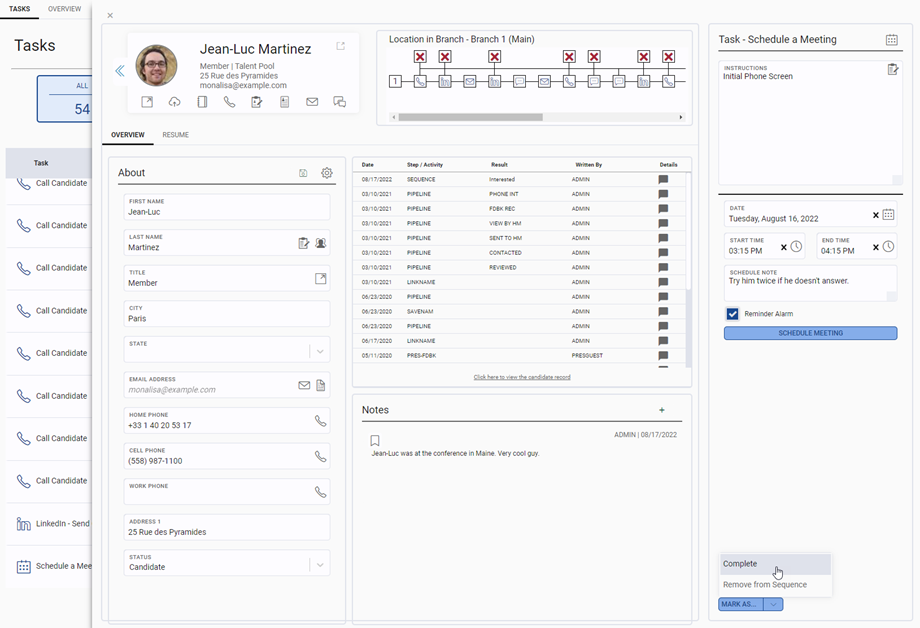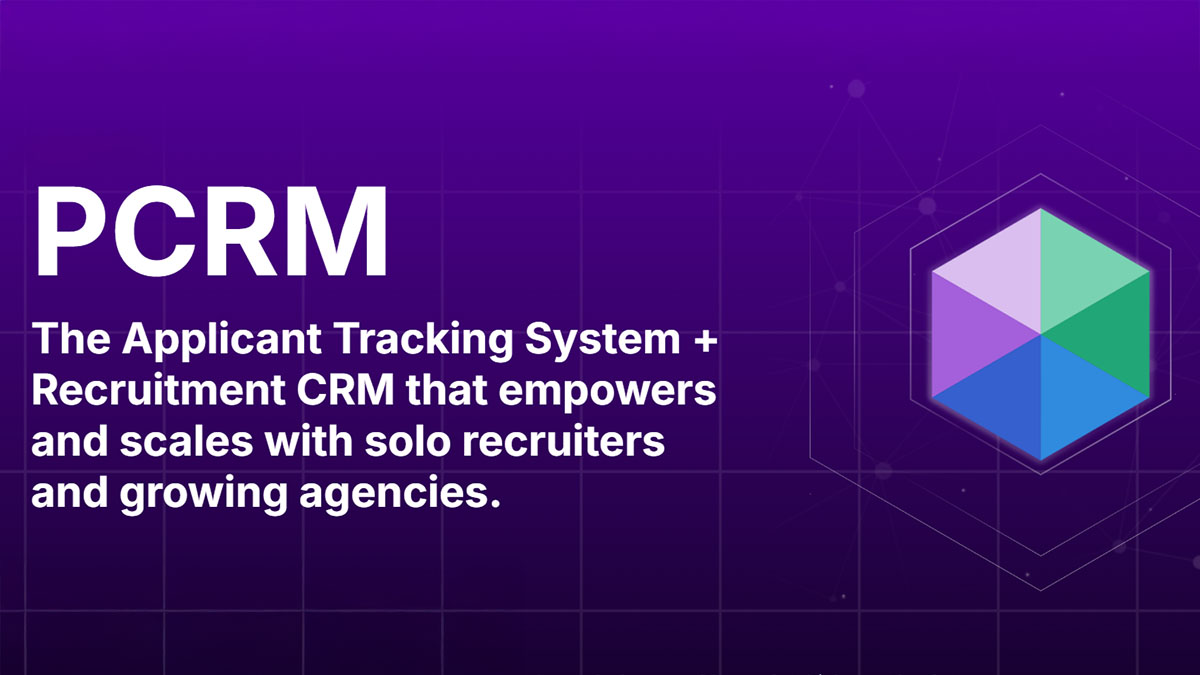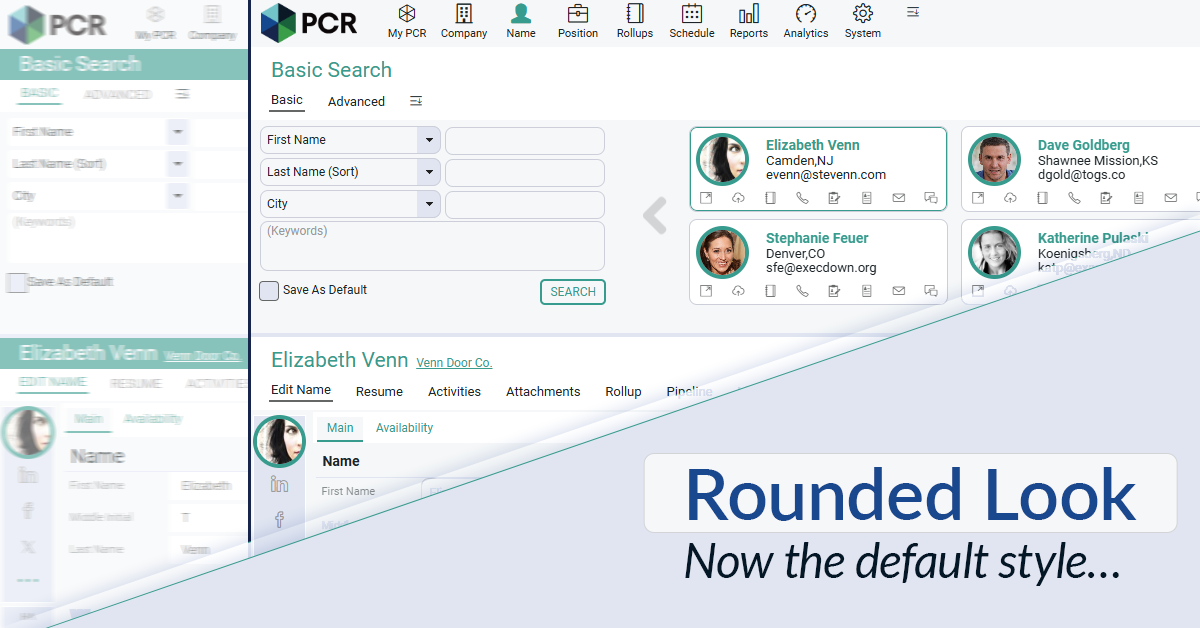Whether they’re new to recruiting or they’ve been doing it for years, your newly hired recruiters need to get up to speed with your firm’s ways of doing things. That includes workflows and software. Most specifically, they need ‘new recruiter’ training on your applicant tracking and candidate relationship management tools.
In this blog post, PCRecruiter’s Drew Rothman looks at key strategies for successful new recruiter training, whether they’re learning the software, the job, or even both things at the same time.
Each recruiter and every recruitment firm has their own unique way of doing things. Sure, they might use similar methods, but as part of your organization, new recruiters need to do things your way, at least in the beginning. If, further down the line, someone wants to adapt or improve on the processes, that should be welcomed.
When tackling new recruiter training you need to ensure they understand your business goals, the key performance indicators (KPIs), and the expectations for getting the job done. Standardized workflows allow you to easily track both candidate and recruiter progress. So when it comes to using a central repository of client and candidate data, you’ve got to ensure that everyone’s doing it the same way.
A sequencing tool can help new hires to learn both the software and the job of recruiting. Giving new recruiters a process to follow, combined with automations such as follow-up emails and text messages, makes it so much easier to get up and running in no time at all. Without a process, recruiters essentially have an open box of tools, but no guidance on how to use them properly.
In some respects, recruitment has a lot in common with sales. The key difference is that instead of pushing a product, you’re selling candidates to companies with open roles, and open roles at companies to prospective candidates.

Knowing the niche is vital in establishing a recruiter’s credibility with both candidates and clients. It’s also essential when handling common pushbacks and comments from candidates in a specific area. Mentoring can help a new recruiter to learn the market they’ll be working in.
When it comes to mentoring, there are different schools of thought. It’s common to assign a buddy to provide support, help them in the right direction, and answer any questions. That said, some firms prefer to throw new recruiters in at the deep end and get them straight on the phone.
There was a time when the two most valuable items in a recruiters tool kit were a phone and a list of telephone numbers. Today, there are still some sectors where this rings true. However, with the rise of online social media platforms, and messaging in all its forms, recruiters have to go where the candidates are. This might mean communicating across a variety of channels, like email or Twitter.
Recruiters who’ve been in the industry a long time, are more likely to be comfortable making calls and sending emails. On the other hand, younger generations who’ve grown up with text messaging and social media are likely to be less comfortable picking up the phone and talking to someone. In fact, recent graduates might never have cold-called anyone, ever.
That’s why training should be personalized to fill the skills gap, and support new recruiters in adapting to your ways of working. Scripting calls and shadowing experienced recruiters is one approach for phone-based recruiters. Meanwhile, video tutorials or face-to-face training on how to use other communication tools can help level-up skills.
The tools you use depend on the industry you’re recruiting in, and the type of candidates you’re hiring. These days, a phone call can feel intrusive to some, whereas a brief message, whether sent by text or on social media, can be read and responded to at the recipient’s leisure. A phone call demands a response right away. Video calls need scheduling and have become the norm in the wake of the global pandemic.
Whichever communication channel your recruiters are using, it’s fair to say that getting hold of candidates can be a challenge.
With a sequencing tool, you can create a customizable workflow which prompts recruiters to take specific actions in a specific order. For example, say a candidate doesn’t respond to a phone call. After a certain amount of time, they might be prompted to send a text message notifying the candidate of the call. Sequencing can also include automations – like sending an acknowledgement email after a specific task is completed.
Sequencing helps new and existing recruiters follow a pre-defined process with little or no training. They can essentially work out of one screen with a clear, task-based workflow. This puts everything recruiters need to do to make a placement in one convenient spot.
With PCRecruiter’s sequencing tool, you can create a clear task-based workflow that your recruiters can step through effortlessly.


PCRM — the CRM and Recruitment ATS hybrid built specifically to empower and scale with solo recruiters and growing agencies — is now available.
Read more
Recruitment professionals are facing a new challenge in today’s digital landscape: scammers posing as legitimate recruiters. These scammers are increasingly targeting remote work job seekers, causing some candidates to become wary of all recruitment outreach.
Read more
The Rounded Look for inputs and navigation elements has been made the default style throughout PCR. This rounded style can be combined with any of the seven color themes.
Read moreFind out more about who we and what we do.